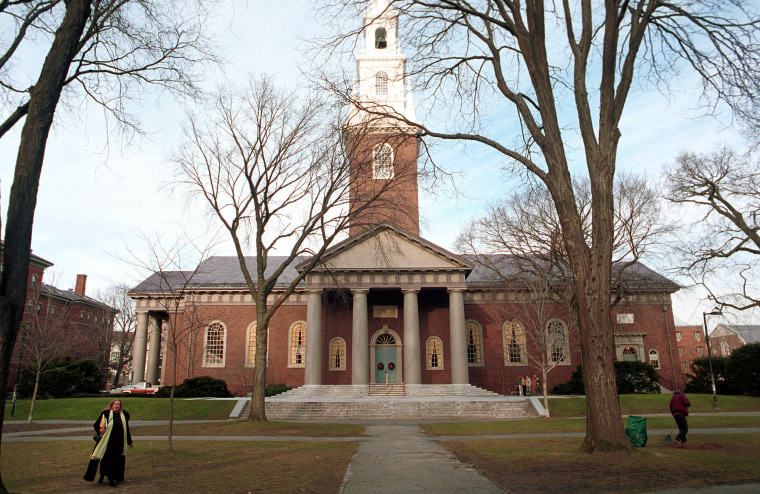The show will be going on at Harvard. The commencement, that is. An ongoing breakout of mumps won't impact the May 26 ceremony featuring director Steven Spielberg, even if the viral illness is making life miserable for nearly five dozen members of the Harvard community — students, faculty and staff.
As of May 12, there were 59 confirmed cases of the illness, with 12 people in isolation, according to the most recent update by Cambridge health officials. That's up slightly from 41 cases in late April.
Harvard University Health Services (HUHS) has been keeping the community informed of best practices for preventing the spread of the illness, and is working with the Massachusetts Department of Public Health and the Cambridge Public Health Department, explains HUHS director Dr. Paul J. Barreira in a statement to TODAY.
The outbreak began in March, but an increase in the number of cases isn’t that unusual.
“In a community with a large residential population, one would expect to see increasing cases of mumps,” he says.
Although Harvard community members were indeed vaccinated, the so-called MMR (mumps, measles, and rubella) vaccine offers different levels of protection depending on the illness.
The measles portion of the vaccine, for example is about 93 percent effective with one dose, while two doses give people 97 percent protection, according to the CDC.
But the mumps portion is less effective.
Two doses of mumps vaccine are 88 percent effective at preventing the illness, while one dose is 78 percent effective.
“The measles vaccine is so good it spoils us,” says Dr. Paul Sax, clinical director of Infectious Disease at Brigham and Women’s Hospital in Boston.
Although there are no plans to cancel graduation ceremonies, “ . . . given the two- to three-week incubation period for the mumps virus, students who come down with the virus at this point may have to miss certain end-of-year activities if they are ill,” says Barreira.
Now that’s a buzzkill, too, especially for any mumps-ridden graduating senior.
Related: 7 Vaccine Myths Debunked by Doctors
Students leaving campus for summer break and out of close proximity of each other will be a big help in curtailing the illness, he says.
Protecting yourself from mumps starts with vaccination, but there are also some common-sense things that people should be doing, he adds, citing hand washing, covering your mouth and nose when sneezing, and avoiding sharing cups and utensils.
“(Mumps) outbreaks have happened before, and they will happen again,” says Sax, a professor of medicine at Harvard Medical School. “But the message is this one will end.”
Related: Mumps Vaccine Loses Its Punch by College Years
Although mumps outbreaks vary from year to year and the vaccine is “. . . not 100 percent effective,” says Dr. Paul Sax, clinical director of Infectious Disease at Brigham and Women’s Hospital in Boston — without it there would have potentially been many more cases among the Harvard community, which numbers about 40,000 students, faculty and staff.
